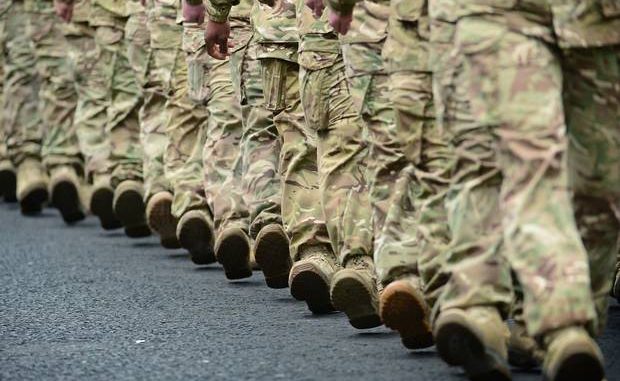
Figures reveal the shocking scale of mental health problems among those veterans who were treated with the anti malarial drug Lariam.
The drug was developed by the US Army in the 1970s and its reputation has suffered greatly in recent years amid repeated warnings over its side-effects and the increasing popularity of alternatives.

BYPASS THE CENSORS
Sign up to get unfiltered news delivered straight to your inbox.
You can unsubscribe any time. By subscribing you agree to our Terms of Use
Latest Video
Lariam has been in the news before, but a new article by the Independent reveals that nearly 1,000 British servicemen and women have required psychiatric treatment after taking the discredited anti-malarial drug.
The Independent reports: The Ministry of Defence (MoD) has been accused of knowingly risking the mental health of its own soldiers after new figures showed that nearly 1,000 British servicemen and women have required psychiatric treatment after taking a discredited anti-malarial drug.
Psychosis, suicidal thoughts, depression and hallucinations are among the mental-health problems associated with Lariam, also known as mefloquine.
But the MoD has rejected all appeals to stop giving the drug to troops posted overseas – to the mounting fury of relatives, politicians and retired military figures who fear it could be responsible for an epidemic of psychiatric illness in Britain’s Armed Forces.
The Independent can reveal that a retired major-general who was given Lariam prior to a deployment to Sierra Leone is among those struggling with the after-effects.
Maj-Gen Alastair Duncan, who commanded British forces in Bosnia, is currently in a secure psychiatric unit after a post-traumatic stress disorder (PTSD) episode over Christmas.
His wife, Ellen, told The Independent: “Like others, I believe that this is a scandal. If 1,000 troops have reported the effects then you can be sure there are others who have not. I know personally of several and anecdotally of many more. “The long-term effects of this will be more and more in evidence over the coming years,” she added, saying the MoD appeared to be “staggeringly unprepared to deal with the fallout”.
n October 2013, Roche, the manufacturer of Lariam, wrote to doctors in Britain warning that “hallucinations, psychosis, suicide, suicidal thoughts and self-endangering behaviour have been reported” and that the drug “may induce potentially serious neuropsychiatric disorders.
It was declared a “drug of last resort” by the US military two years ago, and the US Special Forces Command has banned its use. Alternative anti-malarial drugs are available.
Yet hundreds of British soldiers are still falling victim to the drug’s side-effects each year, as the MoD continues to give it to troops deployed to sub-Saharan Africa, and parts of South-east Asia and Latin America.
New figures released by the MoD in response to a Freedom of Information (FoI) request reveal that 994 service personnel – the equivalent of two infantry battalions – have been admitted to psychiatric hospitals or treated at mental health clinics after being prescribed Lariam since 2008. Previous figures had suggested the number of personnel requiring treatment was substantially lower, at around 700.


